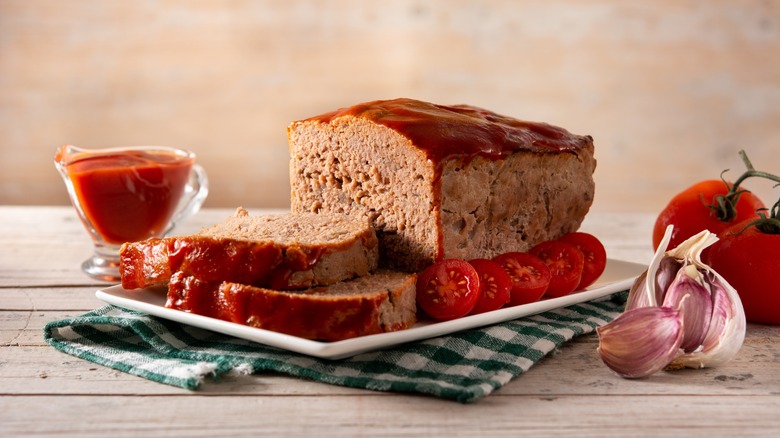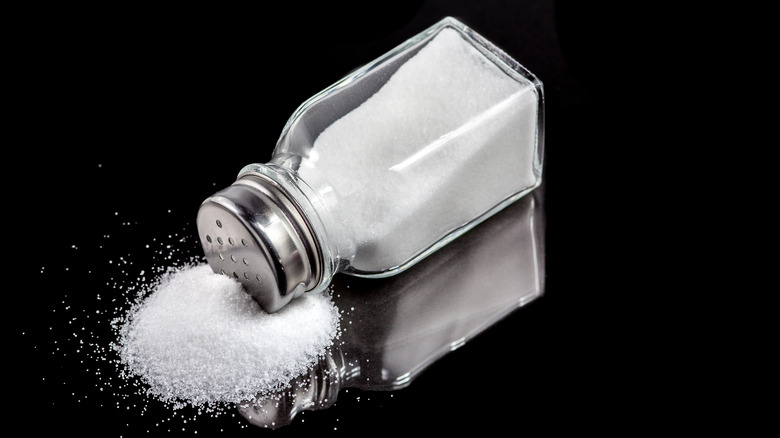The Real Reason You Should Avoid Meatloaf At Restaurants
If you're like most people, you probably enjoy eating meatloaf at your favorite restaurant. This dish is often presented as homestyle cooking that reminds people of their childhoods. However, there's more than meets the eye when it comes to this recipe, and not in a good way. According to Eat This, Not That!, you probably want to avoid meatloaf the next time you eat out. Restaurants often prepare meatloaf with a lot of fillers and little real meat. This dish is also often slathered with sauce to make sure you don't notice the lack of real flavor.
Those fillers and sauces are often loaded in saturated fat and sodium, making this meal one you want to avoid (via Livestrong). While meatloaf can be a delicious comfort food, it's important to remember that it's not always the healthiest option. If you're trying to eat healthy, it's best to avoid this dish altogether or make a healthier version at home. You can make homemade meatloaf healthier by using ground turkey or chicken instead of beef, and by avoiding high-fat ingredients like pork sausage. You can also reduce the amount of sodium in your meatloaf by using low-sodium ketchup or homemade tomato sauce. Whatever you do, just make sure you're aware of what's going into your meatloaf and your body will thank you for it.
Why you should avoid high-sodium foods like meatloaf
Sodium is an essential mineral for our bodies. It helps regulate our fluid levels, and is needed for nerve and muscle function (via Harvard School of Public Health). However, most people consume too much sodium in their diet, which can lead to a variety of health problems. Too much sodium can cause high blood pressure, which can lead to heart disease and stroke. Sodium can also contribute to other health problems such as kidney disease, osteoporosis, and stomach cancer. Too much sodium can cause high blood pressure, which can lead to heart disease and stroke. Sodium can also contribute to other health problems such as kidney disease, osteoporosis, and stomach cancer. In addition, sodium can cause water retention and bloating, which can make you feel uncomfortable.
Fortunately, there are several ways to avoid eating too much sodium in your diet. First of all, pay attention to the labels on packaged foods (via National Kidney Foundation). Many manufacturers add high amounts of sodium to their products to increase their flavor or preserve them for longer shelf life. Also, be mindful when ordering from a restaurant and ask if they have low-sodium options available or request that less salt is added to your dish. Additionally, try reducing the amount of processed food you eat and opt for fresh fruits and vegetables instead. Overall, it is important to keep an eye on your consumption of sodium so that you can enjoy good health.

